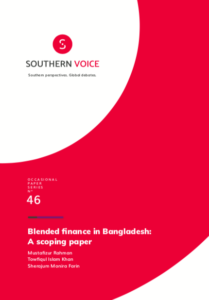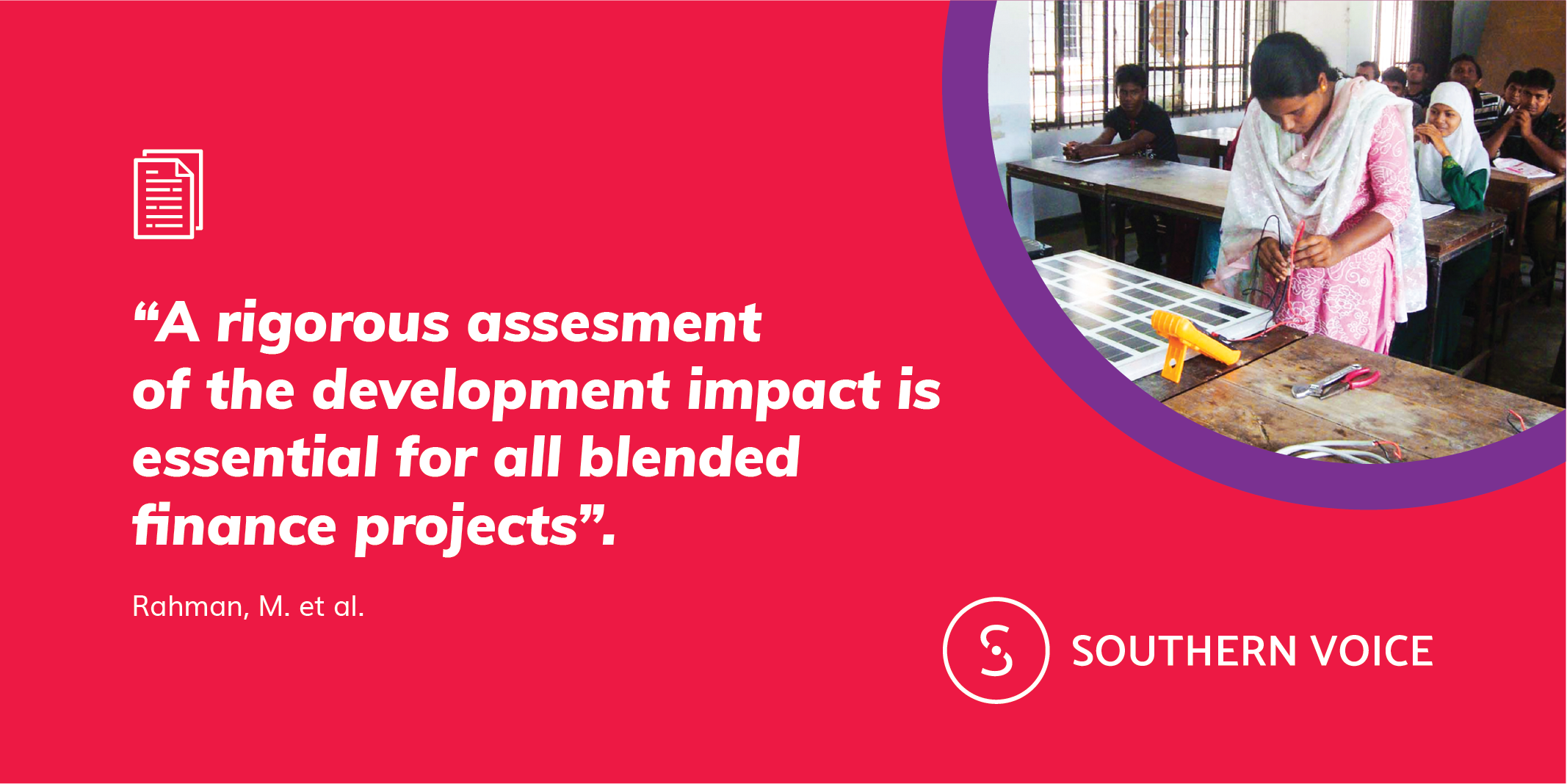Abstract
 Blended finance offers countries such as Bangladesh a vital opportunity to mobilise additional financial resources to address the complex development challenges set out in the 2030 Agenda for Sustainable Development. As a lower-middle-income country, Bangladesh will increasingly experience the reduction of available concessional financing for development. In this scenario, blended finance has the potential to attract investment in areas and sectors that are critical for the attainment of the SDGs in Bangladesh. This study argues that the achievement of positive development outcomes should be the main purpose of blended finance in Bangladesh. Against this backdrop, blended finance should not only benefit large companies but also small and medium enterprises (SMEs). Gains accruing from availing concessional finance should also be passed on to the consumers. This paper cautions that blended finance should not lead to market distortion and undermine the interests of the local financial market. The concerned entities in Bangladesh should carefully address debt management and debt servicing obligations arising from blended finance. The study also makes recommendations to strengthen the regulatory and institutional frameworks to address the challenges emerging from blended finance in Bangladesh.
Blended finance offers countries such as Bangladesh a vital opportunity to mobilise additional financial resources to address the complex development challenges set out in the 2030 Agenda for Sustainable Development. As a lower-middle-income country, Bangladesh will increasingly experience the reduction of available concessional financing for development. In this scenario, blended finance has the potential to attract investment in areas and sectors that are critical for the attainment of the SDGs in Bangladesh. This study argues that the achievement of positive development outcomes should be the main purpose of blended finance in Bangladesh. Against this backdrop, blended finance should not only benefit large companies but also small and medium enterprises (SMEs). Gains accruing from availing concessional finance should also be passed on to the consumers. This paper cautions that blended finance should not lead to market distortion and undermine the interests of the local financial market. The concerned entities in Bangladesh should carefully address debt management and debt servicing obligations arising from blended finance. The study also makes recommendations to strengthen the regulatory and institutional frameworks to address the challenges emerging from blended finance in Bangladesh.


